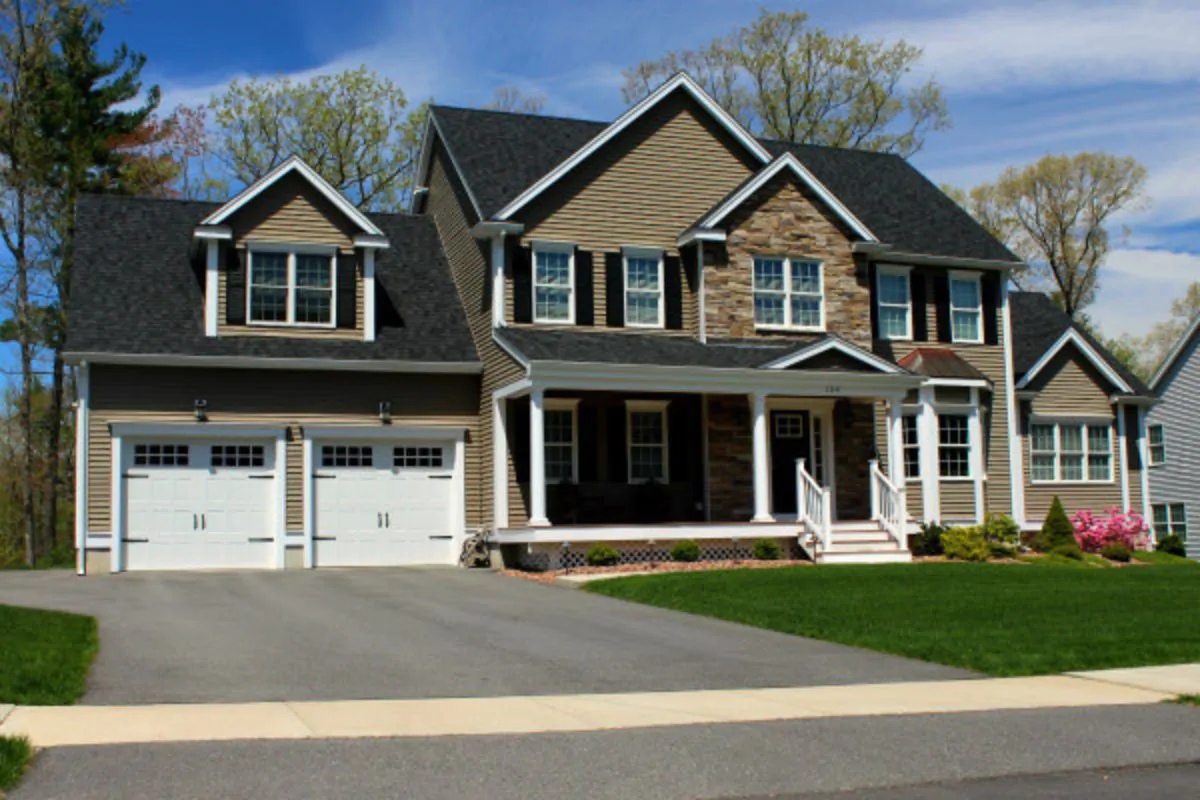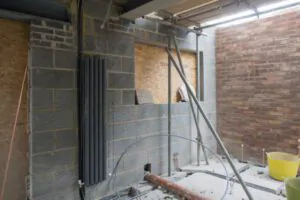If you’re new to home building or this is your first-ever home transformation, this article will explore the factors you should consider when you’re building a new house. From financial planning to design choices and sustainability practices, each step plays a role in shaping not just a physical structure, but a sanctuary that reflects your lifestyle, values, and aspirations.
Read on to learn more about the decision-making involved in turning your dream home into a tangible reality.
Location

When it comes to new home construction, one of the most critical decisions you’ll make is selecting the right location. The location of your future house not only affects your daily life but also influences its long-term value and appeal.
Factors to consider when selecting a location:
- Accessibility and Convenience: Consider the proximity of schools, hospitals, grocery stores, and recreational facilities. Easy access to these enhances your quality of life and adds convenience to your daily routine.
- Neighborhood and Community: Evaluate the neighborhood’s vibe and community atmosphere. Do you prefer a bustling urban neighborhood or a serene suburb? Assess factors such as safety, sense of community, and neighborhood aesthetics.
- Future Development: Research ongoing and planned developments in the area. Is the neighborhood experiencing growth and development? Future infrastructure projects, commercial developments, or zoning changes can significantly impact your property’s value and livability.
- Natural Environment: Consider the natural surroundings of the location. Are there scenic views, parks, or green spaces nearby? Consider factors such as climate, topography, and environmental hazards like flooding or wildfires.
- Resale Value and Appreciation: Analyze the property’s potential for appreciation over time. Look for locations with a history of steady property value growth and strong demand in the real estate market. A strategic location can increase the resale value of your house and provide a favorable return on investment.
Budget

Your budget serves as a roadmap, guiding your decisions throughout the construction process and ensuring that you stay within financial constraints.
Considerations when determining the budget
- Construction Costs: Start by estimating the total construction costs, including materials, labor, and equipment expenses. Consider obtaining quotes from reputable house construction companies or Builders to get a clear understanding of the anticipated costs for your project. Keep in mind that construction costs can vary based on factors such as the size, complexity, and location of your house.
- Permits and Regulatory Fees: Factor in the costs associated with obtaining necessary permits and complying with regulatory requirements. These expenses can include building permits, zoning permits, impact fees, and inspection fees. Failure to budget for permits and regulatory fees can result in delays and additional expenses down the line.
- Contingency for Unexpected Expenses: Set aside a contingency fund to account for unexpected expenses or unforeseen challenges that may arise during the construction process. Unforeseen issues such as structural issues, code compliance issues, or material shortages can impact your budget. Aim to allocate at least 10-20% of your total budget for contingencies to mitigate financial risks.
Size and Layout
When designing your new house, careful consideration of size and layout will help you create a space that not only meets your current needs but also accommodates future requirements. Consider factors such as family size, lifestyle preferences, and potential changes in household dynamics over time.
Maximizing space efficiency will optimize the functionality and comfort of your home. Explore versatile layout options that offer flexibility and adaptability to evolving needs. Open floor plans and multi-functional spaces promote seamless flow and connectivity between different areas of the house, enhancing both practicality and aesthetic appeal.
Remember to consider the future needs and potential expansions. Changes such as growing families, home offices, or aging-in-place requirements, can be supported by features that facilitate adaptability and scalability.
Factors to consider when deciding on the size and layout of the house
- Family Size and Composition: What number of people will be living in the house and what are their ages? A larger family may require more bedrooms and common living areas, while a smaller family or single occupant might prioritize a more compact layout.
- Lifestyle and Activities: Consider the lifestyle and activities of the occupants. Do they entertain frequently? Require dedicated spaces for hobbies or work-from-home setups? Need ample storage for sports equipment or recreational items?
- Future Needs: Anticipate future changes in family size or lifestyle. Are there plans for children, aging parents, or additional roommates? A flexible layout that can adapt to changing needs over time is desirable.
- Budget: The size and layout of a house should align with your budget for construction or purchase, including ongoing maintenance costs. Larger homes generally require more resources to build and maintain.
- Lot Size and Orientation: The shape, size, and orientation of the lot can influence the design and layout of the house. Consider factors such as sunlight exposure, views, privacy, and outdoor living space when planning the layout.
You may be interested in this article: The Pros and Cons of an Open Floor Plan Concept
Quality of Construction
The quality of construction directly impacts the durability, safety, and long-term value of your home. Select reputable builders or professional remodelers with experience, expertise, and commitment to superior results.
Factors to consider when evaluating construction quality
- Materials: The choice of materials plays a significant role in determining the quality of your home. Opt for high-quality, durable materials that withstand environmental factors and minimize maintenance requirements over time. Prioritize materials that offer superior performance and longevity, even if it means higher upfront costs.
- Workmanship: Ensure that your builders and contractors demonstrate attention to detail and adhere to industry best practices throughout the construction process. Insist on skilled craftsmen who possess the expertise and proficiency to execute construction tasks successfully, resulting in superior finished products that stand the test of time.
- Warranties: Find builders and contractors who offer comprehensive warranties on their workmanship and materials. Warranties provide assurance and peace of mind, serving as a safeguard against potential defects or issues that may arise post-construction. Verify the terms and coverage of warranties provided by your chosen construction professionals and ensure that they align with industry standards and your expectations for quality assurance.
Future Resale Value
While building your dream home is an exciting endeavor, reflect on its future resale value, even if you have no immediate plans to sell. By making strategic design and investment decisions, you can maximize the potential resale value of your home, ensuring a strong return on investment in the long run.
Factors that can impact resale value
- Design: The design and architectural style of your home significantly influence its appeal and marketability. Opt for timeless design elements and architectural features that have broad appeal and withstand changing trends.
- Market Trends: Stay informed about market trends and buyer preferences in your target demographic. Incorporate sought-after features such as energy-efficient appliances, smart home technology, and outdoor living spaces to enhance the attractiveness and marketability of your home.
Conclusion

Building a new house that requires careful planning, foresight, and attention to detail. By considering factors such as location, budget, construction quality, size and layout, and future resale value, you can create your dream home with confidence and clarity.
Remember that collaboration with reputable builders, architects, and construction professionals is key to achieving success in your construction project. Prioritize open communication, transparency, and alignment of goals to ensure that your vision for your new house is brought to life with precision and excellence.






